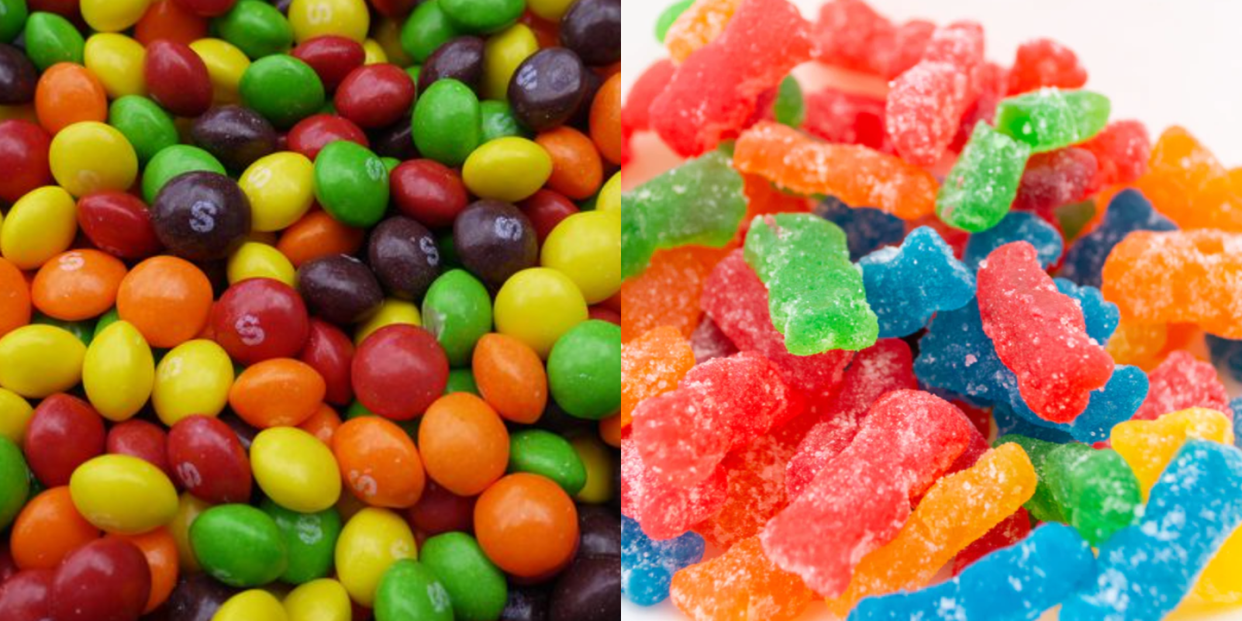Skittles & Sour Patch Kids May Be Getting Banned In One State Due To 'Dangerous Additives'

Last year, Skittles made headlines after it was reported that the Mars Corporation was being sued over to their use of titanium dioxide in the candy. Already banned in Europe, titanium dioxide is used to help produce those rainbow colors Skittles is known for.
But months after the lawsuit was made public, a California State Assemblyman has decided to take further action.
According to SFGATE, in February of this year, Assemblyman Jesse Gabriel introduced Bill 418. The bill would prohibit the manufacture, sale, and distribution of food products containing titanium dioxide and four other chemicals linked to cancer and other health risks. Those four other additives are red dye 3, potassium bromate, propylparaben, and brominated vegetable oil.
“Californians shouldn’t have to worry that the food they buy in their neighborhood grocery store might be full of dangerous additives or toxic chemicals,” said Assemblyman Gabriel in a statement. “This bill will correct for a concerning lack of federal oversight and help protect our kids, public health, and the safety of our food supply.”
Skittles is far from the only candy that contains titanium dioxide. If Bill 418 is approved, Sour Patch Kids, Starburst, Swedish Fish, and Trolli gummies would also be banned in the state due to the inclusion of titanium dioxide and other additives.
On the positive side, Assemblyman Gabriel shared his belief that instead of going forward with the ban in California, candy manufacturers would likely change their ingredients instead.
"The idea here is for [companies] to change their recipes...It is unlikely they'll have one recipe in California and one in Oklahoma," he told the Daily Mail.
Titanium dioxide was banned in food products in the EU last year following studies that showed the chemical could increase risk of intestinal inflammation, immune system damage, and cancer, according to The New York Times.
After the California bill was proposed, food industry leaders from the National Confectioners Association, California Grocers Association, and the American Chemistry Council released a statement arguing that the additives are not harmful. "All five of these additives have been thoroughly reviewed by the federal and state systems and many international scientific bodies and continue to be deemed safe," read the letter.
You Might Also Like
